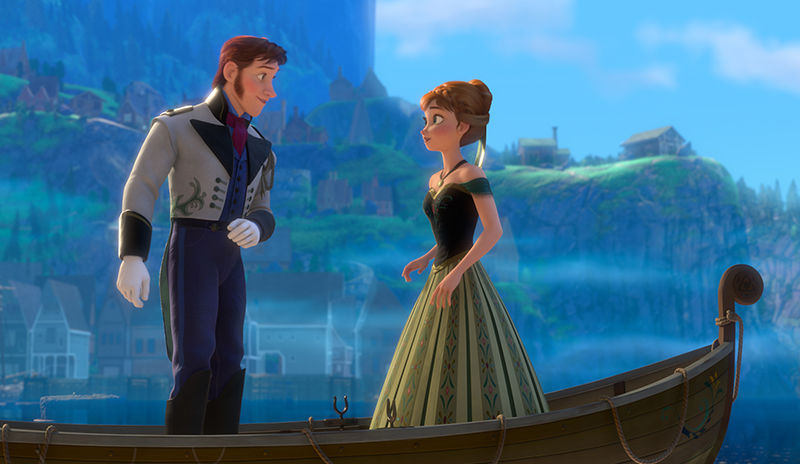Since I wrote a commentary on the new Fox series “Lucifer” weeks before it debuted, I thought, in the pursuit of fairness, I would watch the very first episode that recently aired and give it a shot. It did not fail to disappoint.
I could not get through the end of the first act of a show expecting me to watch a demon as the lead character in a plotline demanding I build up some kind of empathy for the spawn of Satan as he dispenses sound positive life advice to a strung-out pop singer. By definition a demon is not life affirming and when the first act is about to come to a crescendo as that same pop star is gunned down in a flash of drive-by violence, the Lucifer character is filled with “righteous” anger.
It was enough mixed messages and dissonant chords to give one a blood clot.
So here I sit only two paragraphs in on this article and nowhere to go with regards to “ Lucifer” … but God provides, and the one quarter of an hour I spent (or wasted) on this show got me thinking about the culture in general and its insistence on excising the natural order so lovingly bestowed on us by the Creator.
While this TV show may never win an award, it does share something in common with just about every Oscar-nominated film and every other “important” television show out there — the rejection of God-designed boundaries. The path to happiness and fulfillment always seems to be paved with an internal self-awareness and awakening, rather than reliance on some outmoded, paternalistic and anachronistic external construct.
Music, film, television — art in general — obsesses over the yearning to be “free” against anything other than our own heightened sense of self. It’s the major thrust in as wildly different cultural expressions as Disney’s “Frozen” and Quentin Tarantino’s “Inglorious Basterds.”
I’ll bet you never imagined you’d ever live long enough to see those two films referenced in the same hemisphere, let alone the same sentence, but they actually have a lot in common with each other.
Tarantino even rejects English grammar in the title of his little opus, but, most importantly, he rejects any semblance of restraint or subjective truth that must be served in the long run. As long as you are killing the “right” people, all manner of brutality and torture are perfectly acceptable.
The only caveat to the behavior exhibited by the characters in any Tarantino film is that as long as you are being true to your own self-made rubrics, and, in the case of the aforementioned film, killing villains like Nazis feels so right, you will wind up with people in the audience cheering as a defenseless man is beaten to death with a baseball bat. Not exactly St. Augustine’s just war theory here.
Now comes the tricky part. If I don’t do this just right, there may be an army of blue-gowned princesses storming the editorial offices of The Tidings with torches and pitchfork, but the animated feature “Frozen” has a similar take on the world. If you listen carefully to the lyrics of the hit song from that film “Let it Go” you hear a pretty simple emancipation proclamation against an ordered universe.
“It’s time to see what I can do, to test the limits and break through. No right, no wrong, no rules for me. I’m free!”
Those words certainly seem to belong more in the wheelhouse of Onkel Friedrich Nietzsche of 19th century Germany than Uncle Walt Disney of 20th century Kansas City, Missouri. And to be honest, hearing little girls singing on Facebook video clips in their cute little Elsa costumes as they recite words of Teutonic Nihilism is simultaneously unnerving and bizarre.
As per my custom, I often times retreat to the past to get a shot in the arm of a different sort. The recently restored version of Orson Welles’ “Chimes at Midnight,” available on DVD by Criterion, is such a remedy.
Leave it to Welles to have the audacity to combine multiple Shakespearean plays to make a leading man out of Jack Falstaff. But the real lead is the reckless and irresponsible Prince Hal.
He spends his days in abject debauchery living to the tune of his own internal rules of ill-discipline. If he applied the same world view to Prince Hal as the creators of “Frozen” attached to Elsa, Shakespeare would never have gotten Prince Hal out of the Boar’s Head Tavern. But, unlike Elsa, Hal understands he really is not free. He is a slave to his wants and desires, but slowly comes to accept the truth — that maybe there was more in store for him.
The something more is the knowledge that he had a birthright and was meant for greater things. As we are all, by virtue of Baptism and the promise of eternal life.
To the great benefit of England, Hal became the great Henry V and grew into the person he was supposed to be. In order to do that, the character of Prince Hal had to recognize a power greater than himself was in play in his life, and, with regard to his self-involved, self-indulgent hubris, he just had to … let it go.
Robert Brennan has been a professional writer for more than 30 years, including many years in the television industry.

